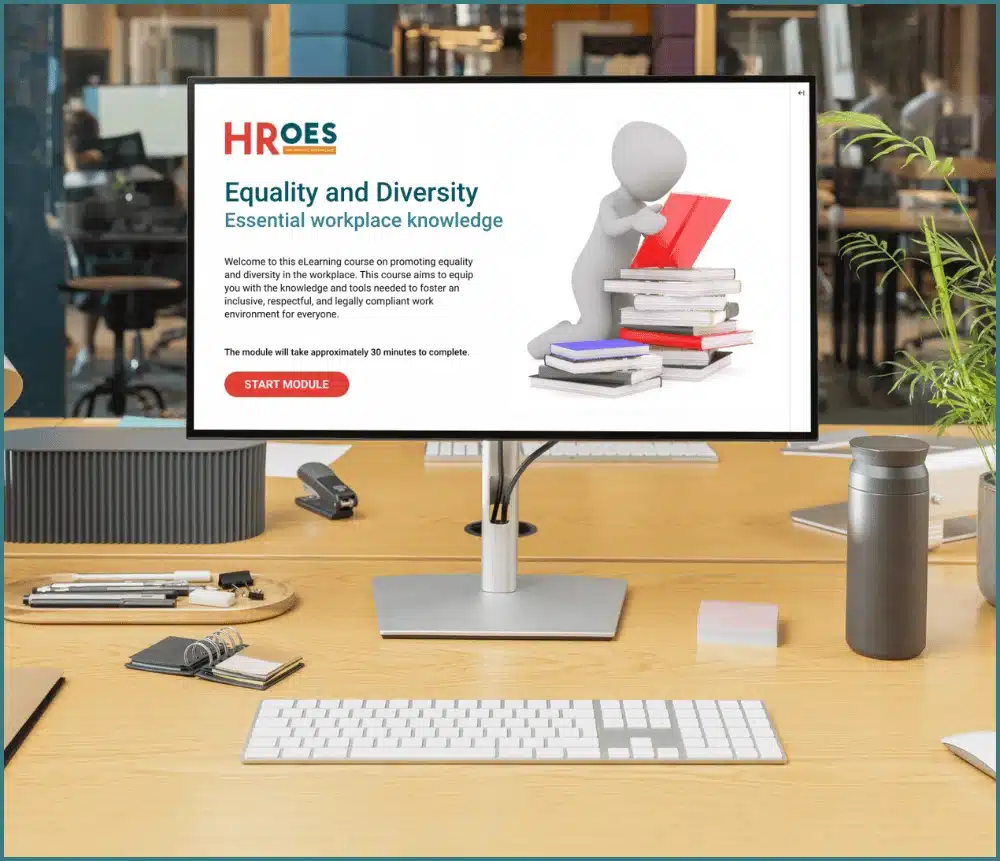Discrimination complaints in the workplace are never easy to deal with – but how you respond matters. The consequences of mishandling a complaint can be serious, from legal action to loss of trust within your team.
Knowing how to approach discrimination issues fairly and within the bounds of the law is critical for HR professionals, managers, and business leaders. In this post, we’ll walk you through the key steps to handling a discrimination complaint correctly – and how our Anti-Discrimination e-Learning Course can help prepare your team.
-
Take Every Complaint Seriously
Even if a complaint seems minor or unfounded at first glance, it should always be taken seriously. Dismissing or minimising someone’s experience can not only worsen the situation but also expose the organisation to legal risks.
Tip: Create a clear, accessible process for employees to report concerns confidentially and without fear of retaliation, like our HR software’s built in grievance system.
-
Respond Promptly and Neutrally
Once a complaint is received, acknowledge it quickly. Timing matters. Delays in responding can be interpreted as indifference and can increase organisational liability. Ensure the complainant knows the issue is being taken seriously.
Tip: Avoid jumping to conclusions. Maintain impartiality until all the facts are known.
-
Conduct a Fair and Confidential Investigation
A thorough, impartial investigation is the backbone of a fair process. Gather evidence, speak to all relevant parties, and document every step.
Tip: Use a trained investigator – internal or external – who understands the legal and emotional sensitivities involved otherwise you’re putting your business at risk to uncapped compensation claims.
-
Maintain Confidentiality Throughout
Confidentiality protects all involved and ensures the integrity of the investigation. Information should only be shared on a need-to-know basis, and retaliation of any kind must be prevented and penalised.
-
Take Action Where Appropriate
If the investigation finds that discrimination has occurred, take immediate and proportionate action. This could include disciplinary measures, policy reviews, additional training, or even termination in severe cases.
Tip: Focus not only on punishment but on education to prevent repeat issues. To support fair outcomes, our HR software includes a Disciplinary Decider tool with legally backed outcomes and clear, up-to-date employment law guidance.
-
Follow Up and Support All Parties
After the investigation, follow up with the complainant to ensure they feel safe and supported. If relevant, check in with other team members as well. This helps rebuild trust and encourages staff to confidently come forward with problems in future.
-
Document Everything
Accurate documentation can be a lifesaver in the event of legal action. Keep records of the complaint, the steps taken, the rationale for decisions, and the outcomes. This not only demonstrates due diligence but ensures accountability.
Tip: Our HR software streamlines the entire process – from generating disciplinary and grievance welcome letters, to custom policies, and securely recording investigation outcomes all in one place.
Prepare Your Team With the Right Training
Our Anti-Discrimination e-Learning Course provides practical, engaging training that equips your team to:
- Recognise discrimination and unconscious bias
- Respond appropriately to concerns
- Build a legally compliant workplace
Completing training demonstrates you’ve taken all reasonable steps – a successful defence if a tribunal ever arises. Our CPD-accredited course takes just 45 minutes, can be completed anywhere, and costs only £25 per person.
A small sum to save huge sums in future – get started today by purchasing here.

